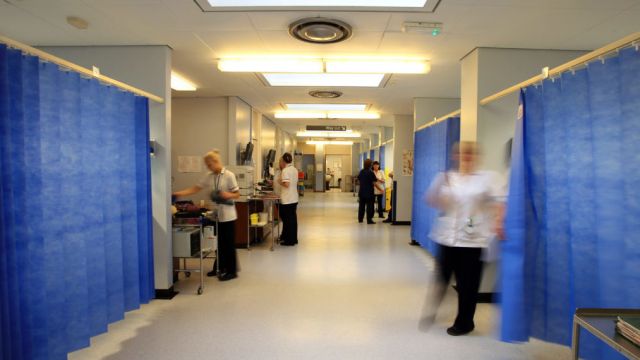A total of 10,991 patients were forced to wait for a hospital bed in February, updated TrolleyWatch figures from the Irish Nurses and Midwives Organisation (INMO) show.
The top five most overcrowded hospitals were University Hospital Limerick (2,247 patients), Cork University Hospital (1,070 patients), University Hospital Galway (987 patients), St Vincent’s University Hospital (651 patients) and Sligo University Hospital (649 patients).
INMO general secretary Phil Ni Sheaghdha said numbers have not fallen since the St Brigid's Day bank holiday, and warned with two bank holidays to come in March the HSE "must outline what steps they are taking in the run up to St Patrick's Day".
"Since the end of January, I have been in the majority of hospitals that the INMO counts trolleys in and have witnessed dangerous scenes in many hospitals with patients being treated in completely inappropriate spaces.
"It is clear that most hospitals are operating at over one hundred per cent occupancy, meaning that patients are being cared for in all available spaces which is unsafe.
"Nurses and midwives are highly trained professionals who have a deep appreciation for the provision of safe care for their patients. It is impossible for them to provide care in a safe manner in the current conditions in our public health system.
"Many are reporting that the intention to leave, whether to retire early, move abroad or move to another position in the community or private sector, is worryingly high."
Ms Ni Sheaghdha said staff morale is "on the floor" with a sense of "helplessness" in hospitals.
She added: "This is not helped by the HSE’s baseless hiring freeze of patient-facing staff. The system of hiring was very slow to begin with but the introduction of a derogation system and a blanket ban on hiring will render very unsafe situations even worse.
"Directors of nursing and midwifery are now saying population growth has not been factored in, the increased daily activity has not been factored in and they will not be able to stand over levels of care due to the recruitment freeze.
"If we are going to have any hope of turning things around for our public health service then safe staffing must be the number one priority, nothing less will do."







